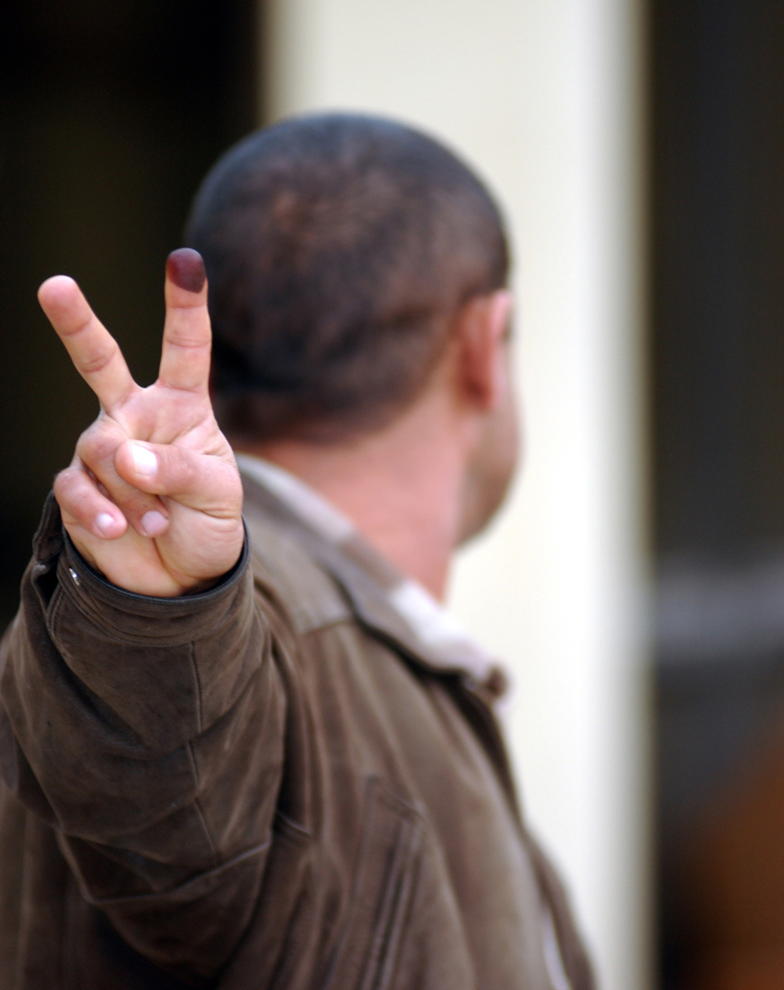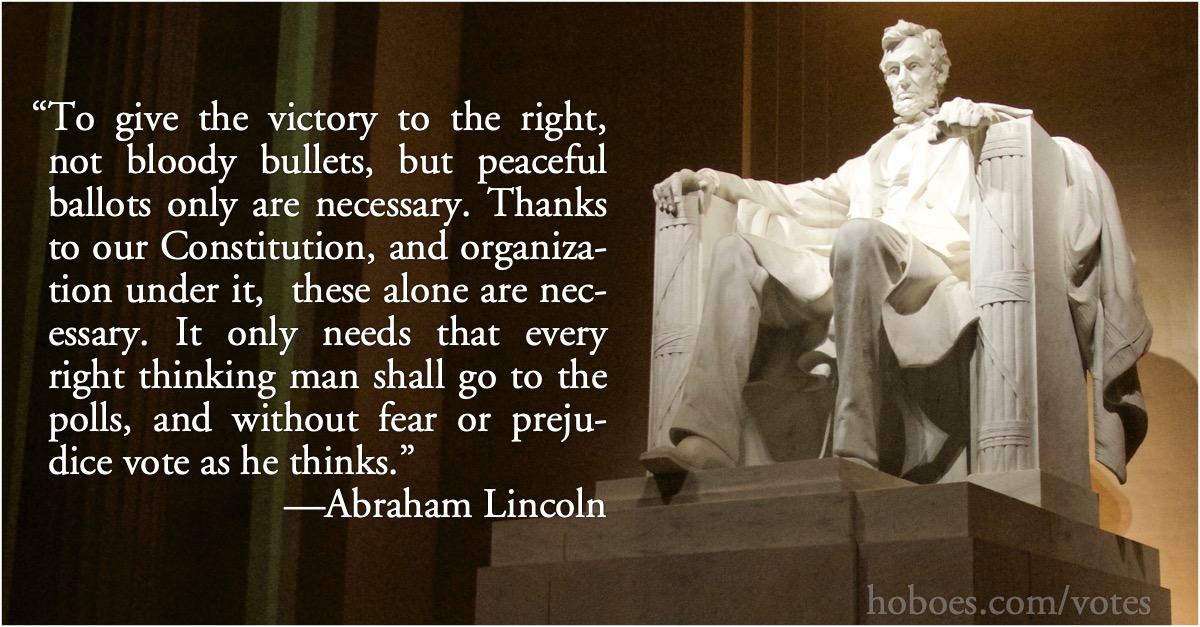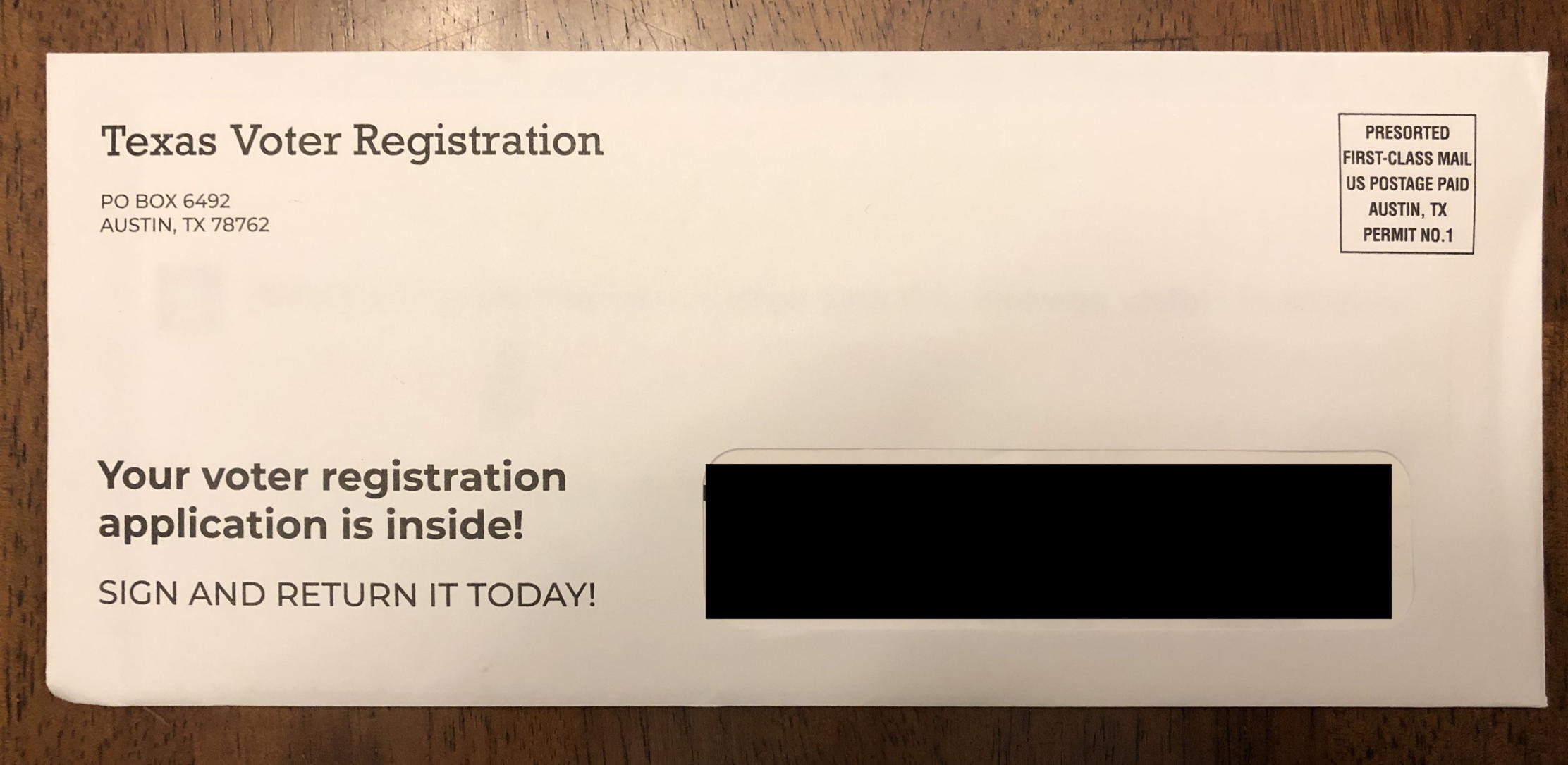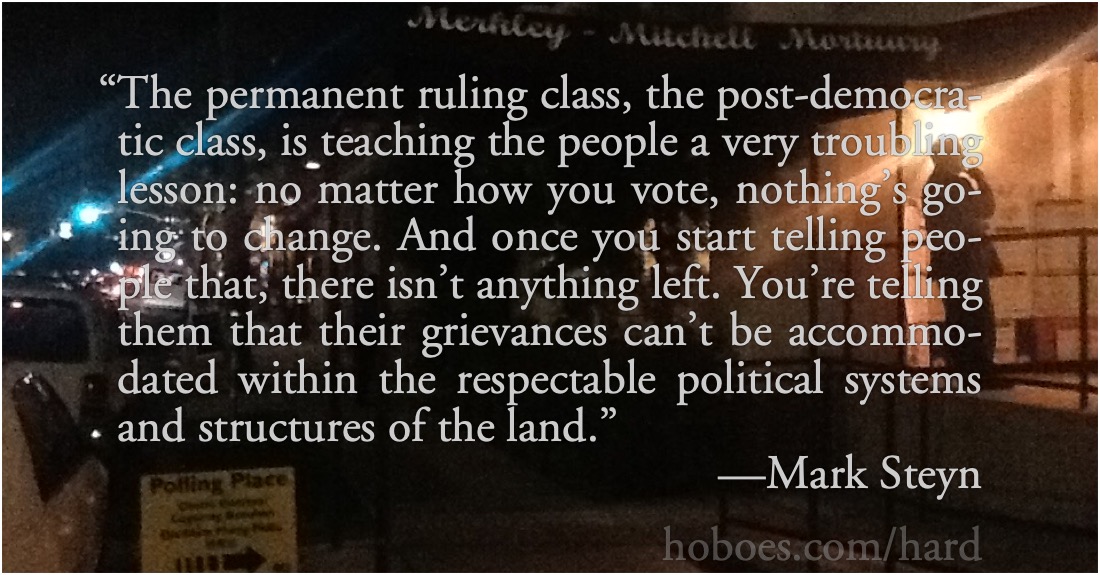Bean counting and ballot counting
I saw this from someone inadvertently bolstering Trump’s claims:
Dear Mission Federal Credit Union, I just want you to find 11,780 dollars in my savings account. Everyone there has miscounted.
They thought that was making fun of Trump, but in fact it points out a very severe deficiency in how we handle elections. What would happen if he actually made that request is that Mission Federal would take it seriously and do an investigation. They wouldn’t stonewall and gaslight him and tell him it’s not enough money to worry about.
I’ve dealt with Mission Federal—they used to be my credit union. Like any bank or credit union, if you show them that your savings account total plummeted inexplicably in the early morning, you won’t need affidavits for them to open an investigation, and it will be thorough. In fact, if it turns out that the total in one part of their system does not match the total in another part of their system, they won’t even wait for you to contact them. They’ll open an investigation immediately whether you ask for one or not.
The few times there’s been fraudulent use of one of my credit cards, the bank noticed it before I did. They didn’t stonewall and say there was no fraud, or wait to see if I noticed it and then ridicule me. They fixed it, and let me know what they’d done.
Banks and credit unions know that miscounts happen. They know that fraud happens. And so they keep multiple records of the same data from different sources in order to verify different counts against each other. They maintain a chain of custody for assets handled by employees whether the assets are physical or digital. They recognize the signs of fraud and automatically investigate when they see those signs.
If you ask to see your canceled checks, you’ll be able to see them immediately or nearly so. There’s probably already an online system for you to request canceled checks for any reason whatsoever without any arguing with the institution’s officials about whether you need them or not.
What they will not do is tell you, “the money we see missing from your account isn’t enough to matter, so we’re not only not going to restore it, we’re not even going to bother looking into it.” Show them a one-cent discrepancy and they will spend far more than one cent tracking down what went wrong, how to fix it, and how to keep it from going wrong again.
Credit unions and banks have a lot more safeguards and far better validation procedures than what we’ve seen of ballot counting in this election and too many elections in the past. Take a look at the Pennsylvania vote discrepancy. On December 28, seventeen Pennsylvania lawmakers attempted to verify the counts, and discovered that Pennsylvania had over two hundred thousand more votes than people who voted. Pennsylvania’s Department of State replied, you can’t do that. We don’t have a complete count of who voted yet. One of the most basic verifications that financial institutions perform—assets deposited vs. assets accumulated—and Pennsylvanians couldn’t do this nearly two months after the election. That is insane. They should have been able to rectify those two totals the night of the election. To not know how many voters voted nearly two months after the election is erecting a giant neon sign, “fraud welcome here”.

The best voting reforms, like the best taxes, are simple, obvious, and unobstructive.
Our voting systems need the same checks that financial institutions use. We need to be able to verify numbers in multiple places in the system, and flag mismatches automatically for investigation. Ballot counting should be held to at least as high a standard as bean counting. There should be separate counts of voters voting, compared against the count of votes, for each machine, location, precinct, county, and state. Each checked against each other and then against the next level up.
It doesn’t take a conspiracy to pad or delete counts where there’s only a single total. It just takes a determined person. That’s why banks keep multiple totals, maintained by different people and different systems.
Copies of ballots made by machines must be kept and made public for voters and candidates to examine. Originals must be kept for verification against any discrepancy, and the voter must approve the paper original before it gets counted.
Live video of vote-counting shouldn’t require a hack or a court order. In an open election it should be required, and it should be public.
On the other side, information that makes conspiring easier, such as announcing vote totals as they come in, should be sequestrated from the different counters, to make fraud more difficult and more obvious. Vote totals should be announced once; they should be submitted only when completed, and in reverse order of population. The more ballots in a locale, the easier it is to hide fraud, so locales with higher numbers of ballots should be required to send their data first, and so on, down the line.
Because absentee ballots are inherently less secure, absentee ballot deadlines should be a few days before the election, and should be counted first. There must be a full chain of custody throughout the journey of an absentee ballot from the voter to the precinct, and voters should be able to easily verify that their ballot has been received and then that it has (or has not) been counted.
The whole notion of unguarded, arbitrarily placed, “ballot drop-offs” is insane. Can you imagine doing that with cash? Putting a hundred dollar bill into an envelope to pay your credit card bill and then dropping that off into a random anonymous bin for eventual delivery to the Post Office? Most businesses don’t even trust the Post Office for cash—almost every bill I receive contains a note that I should not send cash through the mail to pay it.
Separating the voter from the vote, which is what absentee balloting does, must be a last-ditch option only for those who, through no choice of their own, cannot vote in person but are still eligible to vote.
For that matter, same-day registration is begging for fraud. We’ve seen how difficult it is for some precincts to count votes. Imagine having to verify voters and eligibility at the same time. The likelihood is that errors will be made, and lots of them. Voter verification must be handled and completed well before any election. Voter rolls must be hardened against fraud, and regularly reset to clear them of people who are no longer eligible to vote.
And we must learn to make better use of simple technologies such as photos—so many questions about the eligibility of a provisional vote could be solved if the vote included not just a signature but a photo of the person claiming to be the voter at the moment of voting.
Voting and vote-counting are public activities. Whether someone voted is public, and public verification of elections—open sourcing them—is technically easy. The data, from ballots to counting video, should be automatic, accessible by anyone, and archived for future viewing. Any candidate or voter who wants to validate an election should have the tools to do so.
I’m pretty sure that accounting and auditing experts could come up with even better ideas. Verification and security of numbers is far from a hidden science, nor a new one. But at the very least, we need open elections easily verified by any candidate or voter who chooses to do so.
The suppression of questions about the integrity of the election is the best reason to question it. — Daniel Greenfield (Protect election integrity—censor anyone who questions the election)
In response to You don’t need papers to vote: No, you do not need papers to vote. You just need to walk in and know someone’s name.
- March 3, 2021: Write your rep on ballot security and open elections
-
Our voting system is hopeless archaic. Literally so. The techniques we use to validate elections predate every basic rule of auditing learned in the financial industries since the dawn of the industrial age. And when a ballot count fails even that ridiculously low barrier, nothing happens. We need to update our election procedures to use modern auditing techniques, in a self-auditing manner. If we can also update our elections to use simple, reliable technological innovations that are older than our youngest voters, that’s a bonus.
In states where we know elections are corrupted already, it’s going to be difficult. But we should try. It is especially important that we update our procedures in states where we think elections are mostly trustworthy.
If you trust your state’s election procedures, now is the best time to ask for better security and more openness. By the time you don’t trust your state’s election procedures, it’s probably too late.
But there are also states where a lot of voters don’t trust their elections, but their representatives are nominally in support of secure elections. There’s a chance those are fixable, too.
I’m not going to say, “try to change it anyway, what can it hurt?” because we’ve passed that stage: there is a chance it will hurt, that fighting for open and secure elections will make you a target. Whether the reward—an America where everyone’s vote counts, where legal votes are not drowned out by fraud—is worth the risk is up to you.
This is what I sent to my Texas reps. You will want, of course, to highlight where your own state’s election procedures need updating and strengthening; and you may well disagree with me both on what I put in and what I left out.
Or throw it out completely and write your own, using what you know about your state’s election procedures. But one way or another, secure, self-auditing elections are critical to a democracy. Not just for the election itself but for people’s trust that their voice makes a difference, that their vote makes a difference. Without that trust, democracy falls apart.
- Crowd-sourcing vote fraud detection
- Don’t just require a photo id to vote: require taking a photo when signing in, and make that photo public. How you vote is private, but that you voted is currently and should remain public information.
- The Post Office is not designed for universal mail-in ballots
- Universal mail-in ballots introduce serious problems that the United States Postal Service is not designed to handle. To be sure that all votes are counted, we should continue accepting ballots for 100 years.
vote fraud
- A brush with voter fraud: Tom Knighton at According To Hoyt
- “There’s been a lot of talk about voter fraud through the years. For very good reason, it’s something people take seriously and want to kill with fire. Well, a lot of us at least. However, people often have a misunderstanding about the forms that voter fraud takes. Having looked into events surrounding a local election here in Albany, Georgia, I have a unique perspective on how it actually happens.”
- Protect election integrity—censor anyone who questions the election: Daniel Greenfield at Sultan Knish
- “Election integrity traditionally meant verifying the integrity of the process, but is now being used to mean silencing anyone who questions the integrity of the election… a term that meant protecting the integrity of an internal process has been turned inside out to mean covering up for the corruption of the internal process by censoring its outside critics.”
More elections
- Texas 2023 legislative priorities
- The Texas legislature is in session now for 2023; other than special sessions, it won’t meet again until 2025. Everyone has their priorities. Here are mine.
- Election 2024
- Positioning for election 2024 is already started; the campaign will heat up very quickly after November 2022.
- Write your rep on ballot security and open elections
- Your state should be a model of secure, open, and self-auditing elections. Here’s a sample letter to your representatives.
- Stealing Elections: How Voter Fraud Threatens Our Democracy
- John Fund’s Stealing Elections is a concise, easy-to-read description of just how much of a disaster is looming toward us when vote fraud finally catches up to a major election—as may already have happened in places like Florida.
- The endless campaign
- Should we have endless political campaigns? That’s the Barack Obama plan, but is it right for American politics?
- Three more pages with the topic elections, and other related pages
More mail-in ballots
- The Post Office is not designed for universal mail-in ballots
- Universal mail-in ballots introduce serious problems that the United States Postal Service is not designed to handle. To be sure that all votes are counted, we should continue accepting ballots for 100 years.
More vote fraud
- Who is Trump running against?
- If Trump runs against Biden, he’ll lose, just like he did in 2020: by getting more votes but fewer ballots. It looks like Trump understands that. He’s not running against Biden. He’s running against the Democrats and Republicans who put Biden in power.
- 2020: The Dark Joke Returns
- It’s long past time to do something about the dark jokes we make about corruption among the beltway class.
- The Silver Blaze Media and the Gaslight Election
- This isn’t just the Gaslight election, it’s the Silver Blaze election.
- The Post Office is not designed for universal mail-in ballots
- Universal mail-in ballots introduce serious problems that the United States Postal Service is not designed to handle. To be sure that all votes are counted, we should continue accepting ballots for 100 years.
- Support the freedom to vote as you wish
- The Reader is proud to offer space for this guest editorial to the American Civil Liberties Union. We prove our independence whenever we align with similar political interests.
- Three more pages with the topic vote fraud, and other related pages
More voting machines
- Voting should be special, not stupid
- As we move toward completely computerized ballots, long voting periods, and universal mail-in ballots, we’re telling voters that they’re clumsy, that they’re stupid, and that they’re lazy. Why should voters see voting as anything special?
More voting reform
- Write your rep on ballot security and open elections
- Your state should be a model of secure, open, and self-auditing elections. Here’s a sample letter to your representatives.
- 2020: The Dark Joke Returns
- It’s long past time to do something about the dark jokes we make about corruption among the beltway class.
- Voting should be special, not stupid
- As we move toward completely computerized ballots, long voting periods, and universal mail-in ballots, we’re telling voters that they’re clumsy, that they’re stupid, and that they’re lazy. Why should voters see voting as anything special?



